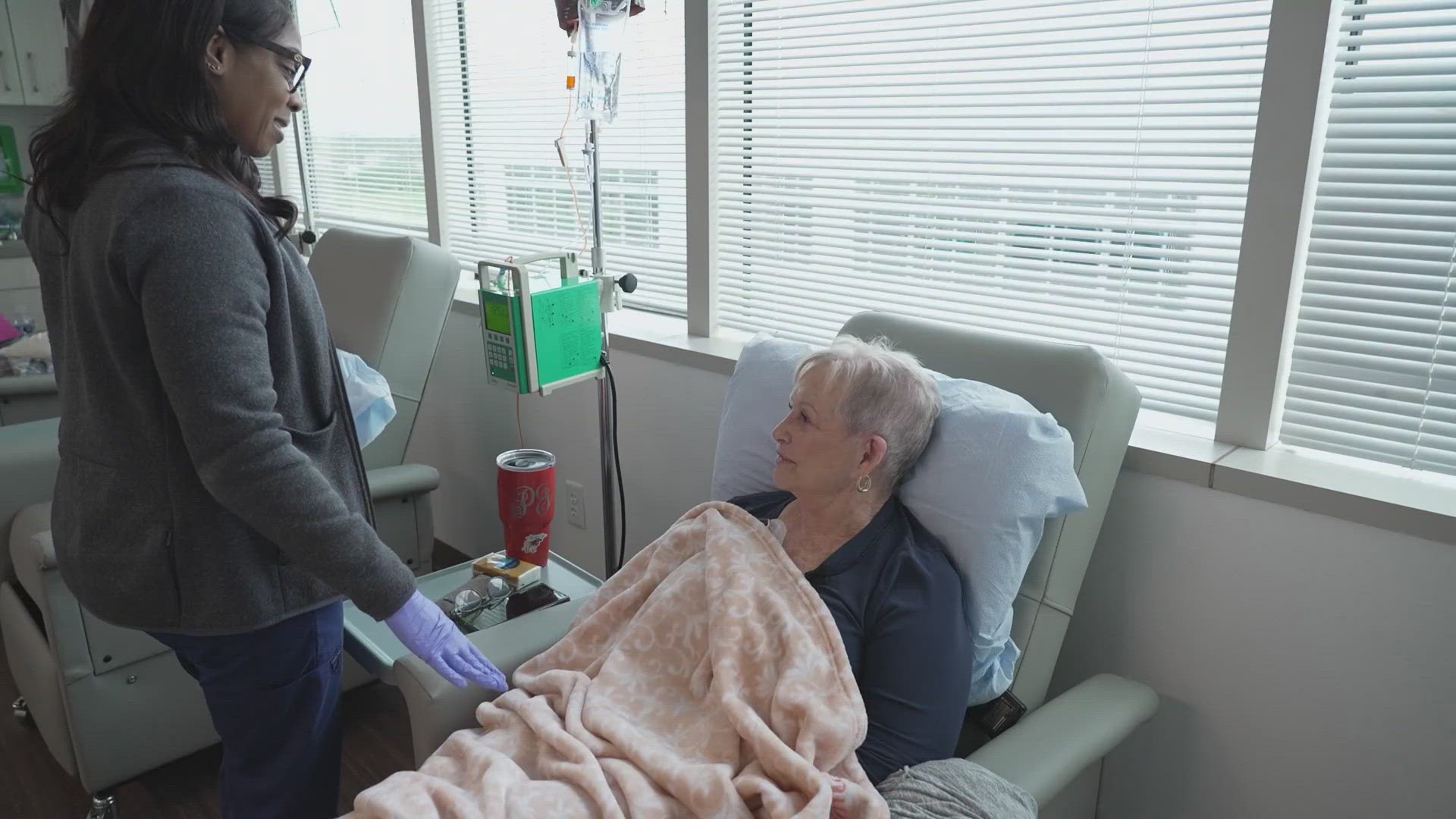HOUSTON — Ovarian cancer is one of the leading causes of cancer death among women.
The American Cancer Society says the risk of getting ovarian cancer during one's lifetime is about one in 87. But like many cancers now, it is highly treatable if caught early.
"I have to admit, at the beginning, it was kind of scary," said Jane McFadden. "And I'm thinking, why me? But then I decided that I was going to fight it."
Jane McFadden was first diagnosed with ovarian cancer in 2019, which came as a surprise considering her symptoms.
"I first thought it was lung cancer because my lungs had actually filled up, you know, with fluid and they drained it and it ended up being ovarian, which never entered my mind," she said. "I thought that can't be. But it was."
Dr. Diego Aviles with UT Physicians says symptoms of ovarian cancer typically include bloating, pain in the stomach or pelvis, feeling satiated quickly, and fatigue. While those could indicate a range of medical issues, Dr. Aviles says it's better to speak to a physician sooner than later.
"So what you want to look for is, first of all, a change -- and a change that doesn't go away after a few days," he said. "So really, if it lingers for a couple of weeks or it's getting worse, please go see a doctor."
Aviles said it mainly develops in older women. Roughly half of ovarian cancer cases are diagnosed in women 63 years or older. But medical advances have made it easier to treat, especially if it's caught early.
"So for a long time, all we really had was surgery and chemotherapy, but these days we're developing a lot of new targeted therapies that really attack a person's specific cancer and it's just been pretty amazing," he said. "People are living longer with ovarian cancer. So it's getting to the point where, for a lot of my patients, I actually think of ovarian cancer more like diabetes or high blood pressure."
Dr. Avila says while family medical history and genetic risks are factors that can't be changed, prevention is possible. Along with a healthy diet and exercise, breastfeeding after giving birth has been shown to lower chances, along with the use of birth control pills.
At 83, McFadden is battling cancer for a third time, and as she begins a chemotherapy regimen once again, she's not letting the fight dull her light.
"You have to keep your feelings and yourself upright and going and doing and not letting it get you down," she said. "But you've got to have that positive attitude. I think it really, really makes a big difference."
UT Physicians is a sponsor of Health Matters
RELATED: How Ovarian Cancer Can Go Unnoticed

